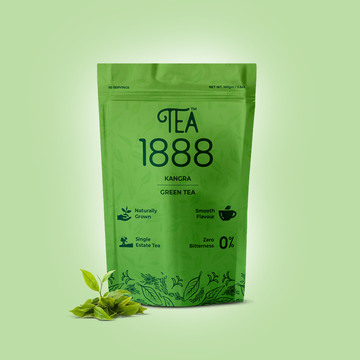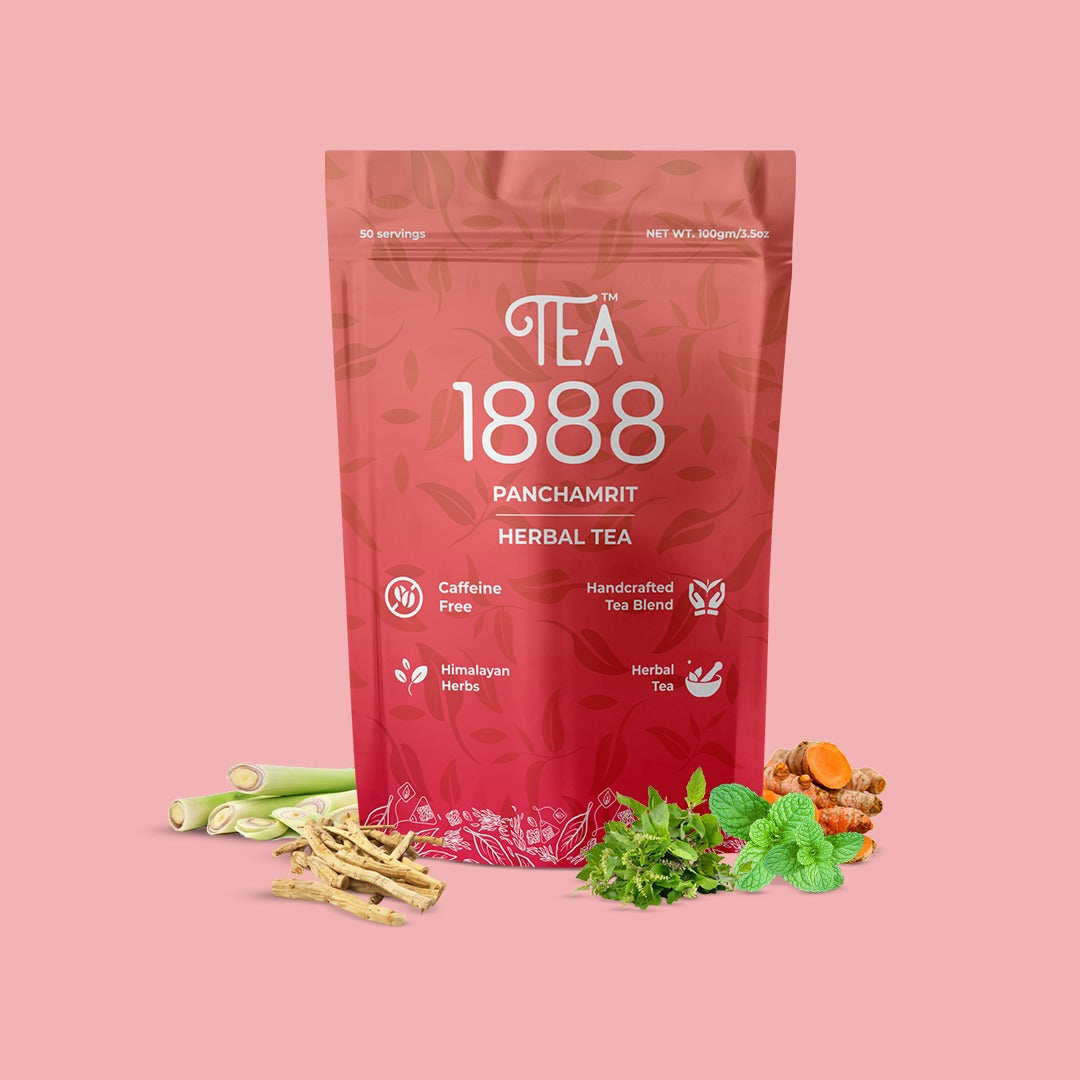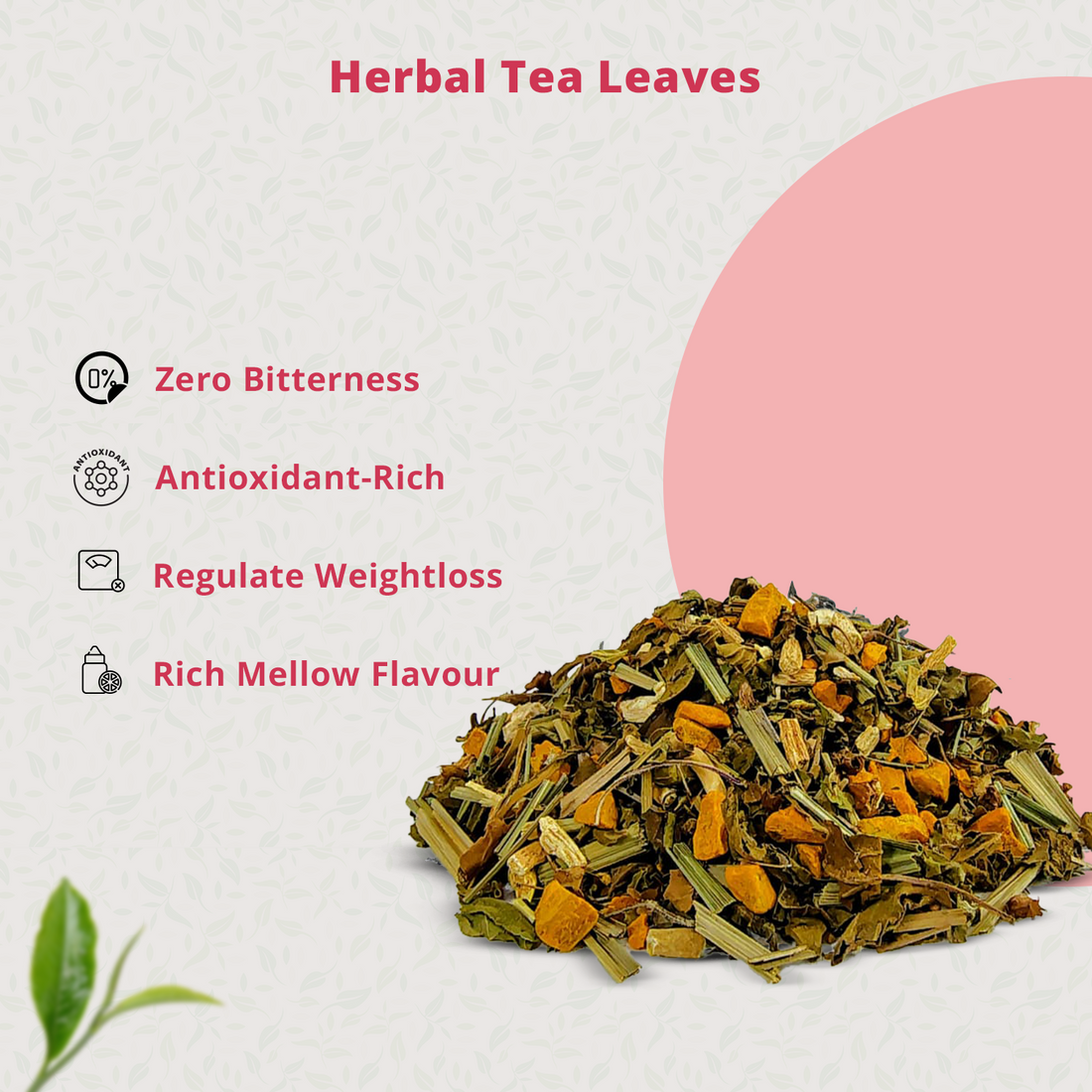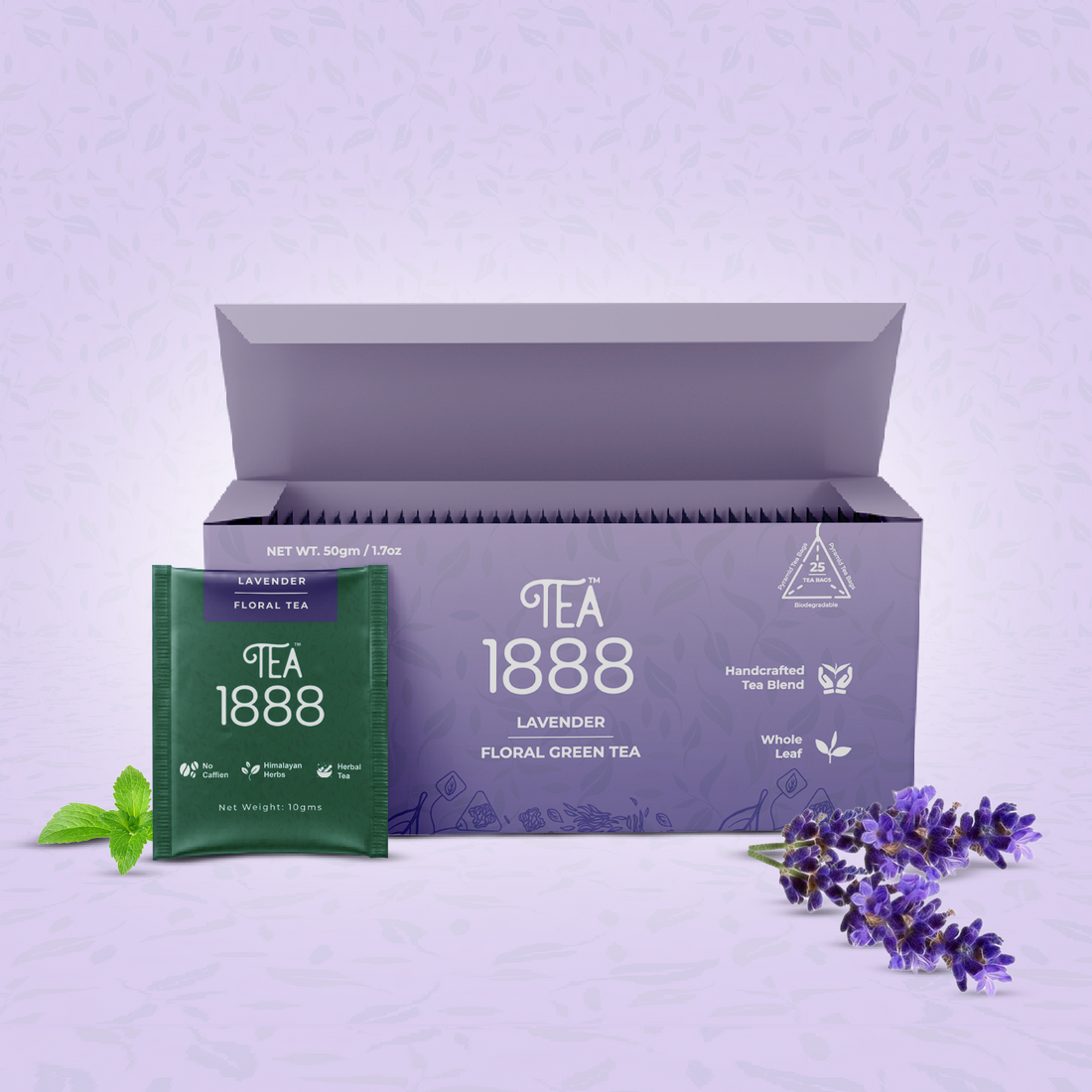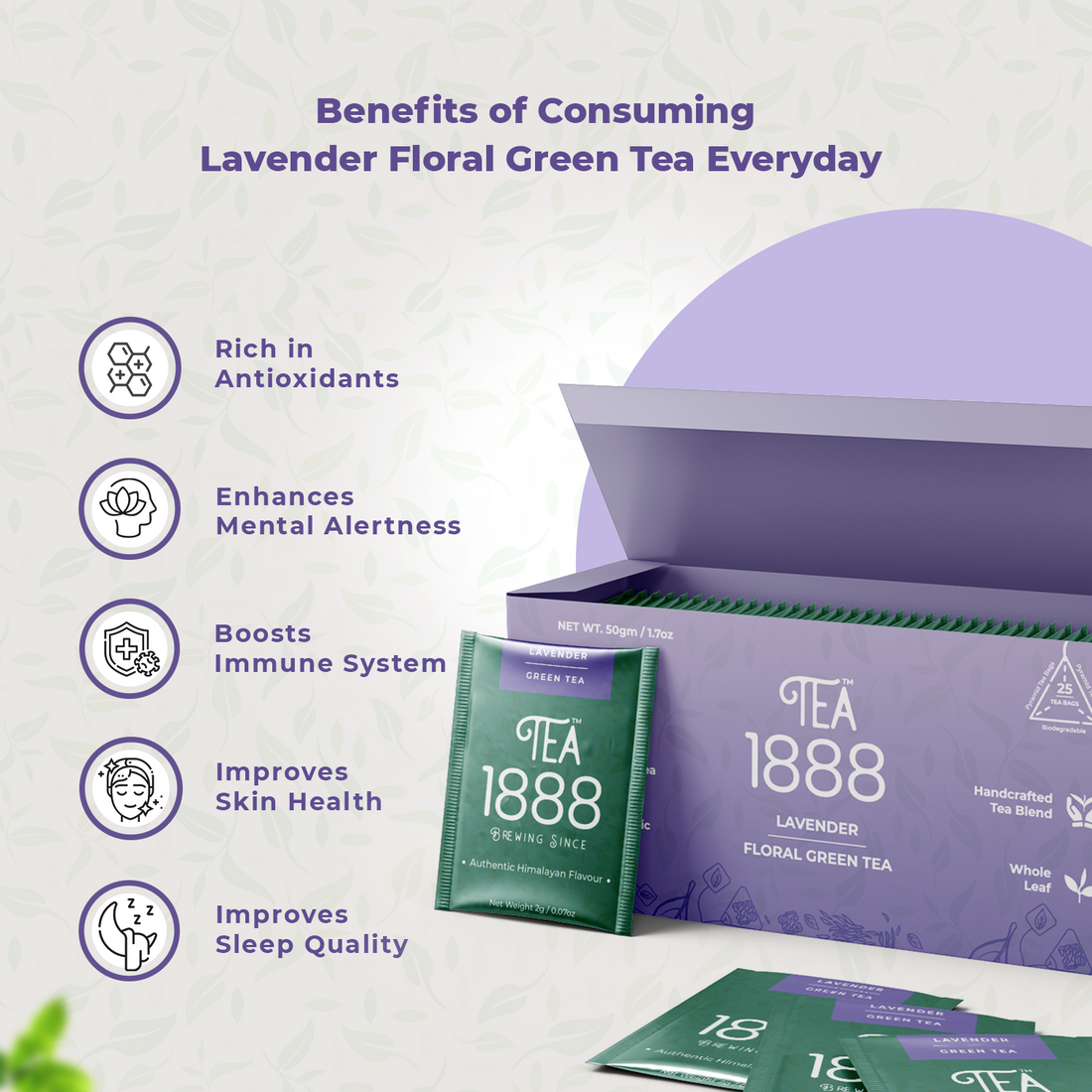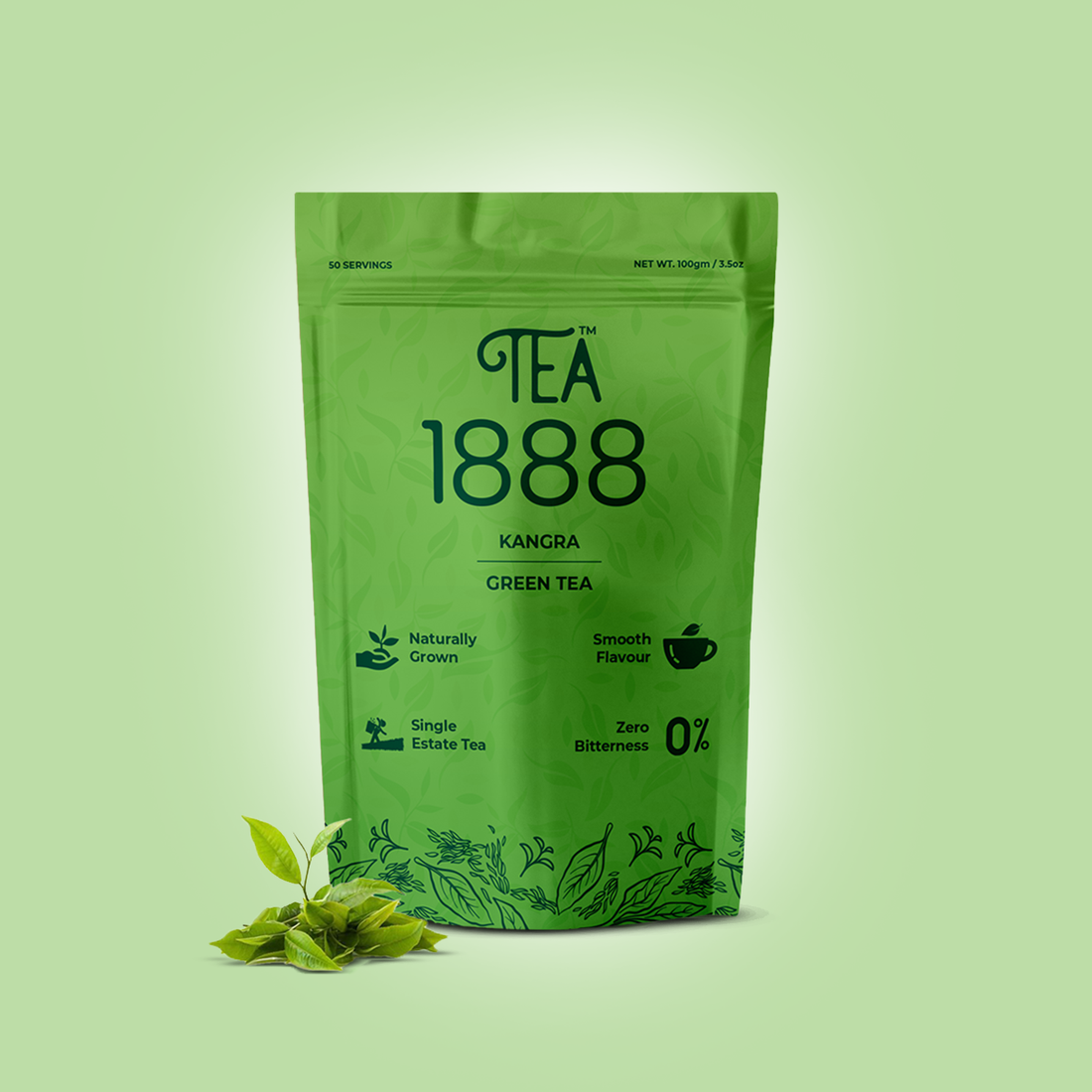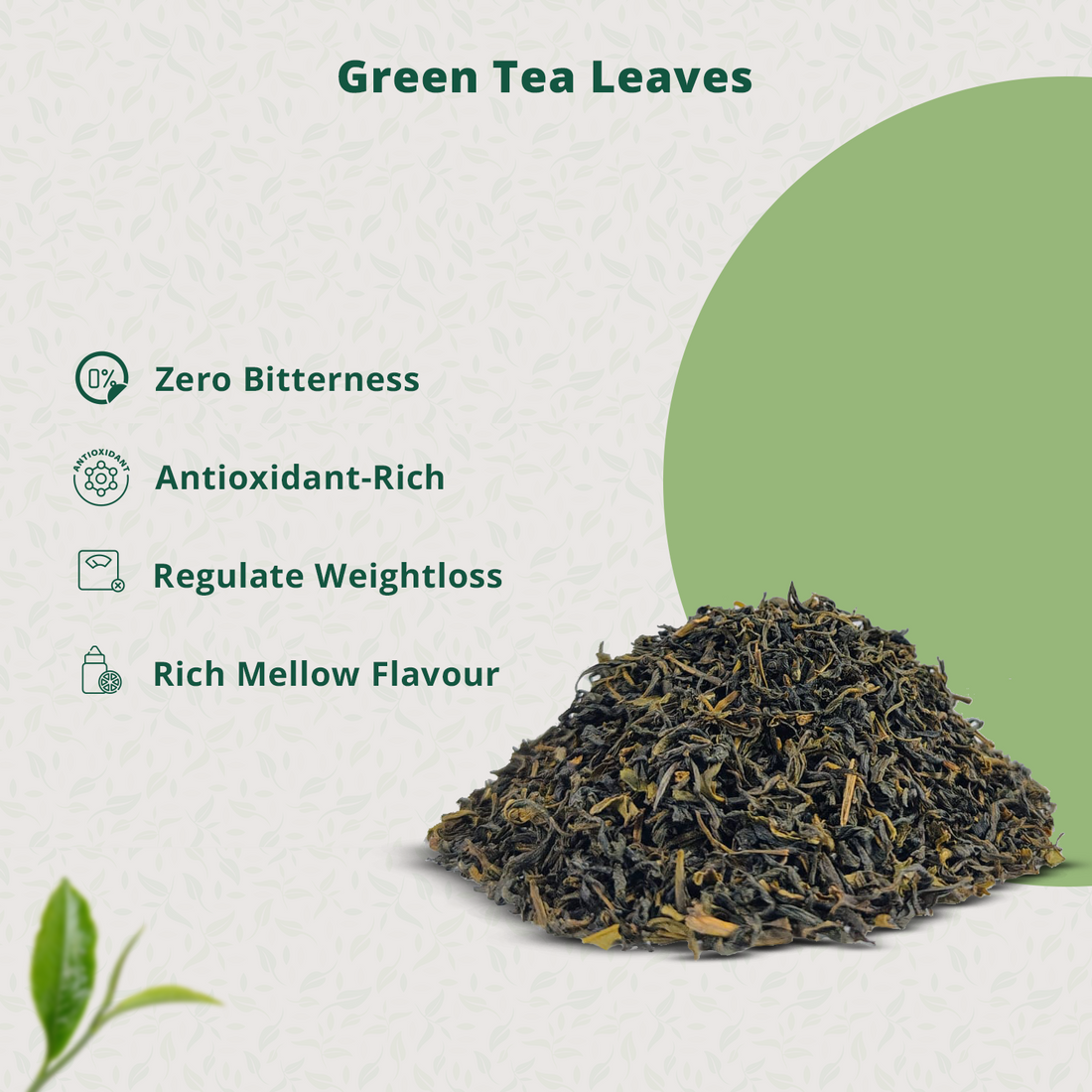Do you get uncomfortable bloating and acidity after eating a spicy Indian meal? Mint green tea could be the simple solution you need. This cooling drink serves as a traditional remedy in many cultures, especially in India where pudina (mint) remains a summer essential.
Mint tea cools your body and provides the most important digestive benefits. The menthol compound in pudina soothes your digestive system and helps prevent acidity and summer fatigue. Research shows that mint tea helps with digestion and irritable bowel symptoms. It relaxes your digestive tract muscles and reduces bloating discomfort.
Mint green tea relaxes stomach muscles and improves bile flow, which helps food move through your stomach faster. This makes it work well after heavy Indian meals with spices and oils that often cause digestive problems. It also acts as a natural detoxifier that flushes toxins while keeping you refreshed. You get a perfect post-meal remedy without adding calories to your diet.

Why Indian Meals Often Cause Acidity and Bloating
Indian cuisine, with its vibrant flavours and complex cooking techniques, often creates digestive problems. Specific ingredients combined with certain eating habits create a perfect storm for acidity and bloating. Let's look at what causes these common problems.
Spices, oil, and heavy ingredients
Spices and oils form the foundation of Indian cooking and contribute to digestive distress. Excessively spicy curries with chilies and garam masala can irritate your gut lining, especially if you have conditions like acid reflux, ulcers, or IBS.
Indian meals mix multiple spices with high amounts of oil or ghee. This combination slows down stomach emptying and triggers bloating in people with sensitive stomachs. Deep-fried favourites like samosas and kachoris made with maida (refined flour) and heavy fillings lack fibre and contain unhealthy fats. These foods are hard to digest and often cause indigestion.
Traditional Indian sweets soaked in sugary syrups make things worse. They feed harmful gut bacteria, throw off microbial balance, and might lead to yeast overgrowth. Late-night eating habits
Late-night eating habits
Meal timing plays a vital role in digestive health. More Indian households eat late at night now, and this disrupts natural digestive processes. Your body's circadian digestive rhythm gets interrupted if you eat late and lie down right after. This is a big deal as it means that your stomach produces too much acid, especially with fatty or spicy foods. Your lower esophageal sphincter (LES) relaxes when you lie down after eating, which lets acid flow back into your esophagus and causes painful heartburn. Regular late-night eating might develop into Gastroesophageal Reflux Disease (GERD), leading to chronic pain and possible permanent damage.
Lack of post-meal movement
Many Indian households believe resting after meals helps, but this habit often makes digestive problems worse. A walk after eating improves digestion by stimulating your stomach and intestines, helping food move through faster. Digestion slows down without post-meal movement. Exercise directs blood flow to your muscles instead of your digestive system, which helps proper digestion when timed right.
Staying completely still after heavy, spice-laden meals leads to gas buildup, bloating and discomfort. A simple 10-minute walk after meals can make a big difference in preventing digestive issues. This easy habit stimulates circulation and reduces feelings of fullness or bloating that usually follow Indian meals.
How Mint Green Tea Helps with Common Digestive Issues
Mint green tea's natural compounds provide amazing digestive benefits that make it perfect after heavy Indian meals. This time-tested beverage helps restore digestive comfort through several ways.

Soothes the stomach lining
Menthol, the active compound in mint green tea, holds the key to its effectiveness. This natural substance relaxes gastrointestinal muscles with its powerful antispasmodic properties. Menthol works by blocking calcium channels in your digestive tract's smooth muscles, which helps your stomach relax after a big meal. That cooling sensation you feel isn't just refreshing - it actively calms your irritated stomach tissues and quickly relieves post-meal discomfort.
Reduces gas and bloating
Mint green tea tackles that uncomfortable fullness and abdominal distension we know as bloating. Your gastrointestinal tract muscles relax when you drink this tea, which reduces bloating and gas buildup. The tea makes shared food transit smoother and faster through your digestive system because of its natural anti-inflammatory properties. Many people drink a cup after spicy, oily meals to avoid that stuffed, uncomfortable feeling.
Eases IBS symptoms
People with irritable bowel syndrome find great relief in mint green tea. The results from clinical studies are impressive - peppermint oil reduced IBS symptoms by 40% after four weeks, while placebo only showed 24.3% improvement. The risk ratio for peppermint's effect on global IBS symptoms was 2.39, showing unmatched improvement. Research with nearly 2,000 children showed that peppermint reduced how often, how long, and how severe abdominal pain became.
Supports liver detox after heavy meals
Mint green tea helps your body's natural detoxification beyond just providing digestive comfort. The tea helps form bile, which improves digestion and promotes healthy intestinal function. The tea's anti-inflammatory properties help reduce liver inflammation while supporting the organ's natural detoxification processes.
Looking for a gentle, minty drink after meals? Tea1888 Mint Green Tea comes with refreshing pudina notes that help digestion and reduce post-meal acidity.
Traditional and Modern Uses of Pudina for Digestion
Pudina (mint) has been the life-blood of traditional Indian digestive remedies for centuries. Its uses go beyond cooking and cover medicinal applications that have proven effective over generations.

Pudina in Indian home remedies
Ayurvedic practice has long respected pudina as a powerful carminative herb. Fresh pudina leaf juice combined with honey and lime juice works as a trusted remedy for indigestion, biliousness, and flatulent colic. Many Indian households use pudina leaf decoction to reduce common digestive problems like morning sickness and summer diarrhoea. People drink pudina tea twice daily to treat hiccoughs, colic, and indigestion. The herb's adaptogenic qualities are great especially when you have to deal with summer heat. It helps balance body temperature and reduces acidity naturally.
Menthol's role in cooling and calming
Menthol, pudina's active compound, acts as a natural muscle relaxant in your gastrointestinal tract. We observed that it blocks calcium channels in the digestive system's smooth muscles, which gives quick relief from stomach spasms. This cooling effect does more than just soothe, it reduces inflammation and stimulates digestive enzymes. Menthol also has antimicrobial properties that help maintain healthy gut flora and protect against harmful bacteria that can disturb digestion.
Mint tea vs. pudina chutney: what works better?
Mint tea and pudina chutney are a great way to get digestive benefits, though they work differently. Fresh mint leaves, green chilies, and spices go into pudina chutney, which triggers digestive secretions right as you eat your meals. Heavy Indian foods pair well with this chutney, which helps stop indigestion before it starts. Mint tea, however, helps relieve existing discomfort through menthol's antispasmodic effect on the digestive tract. Pudina chutney usually works better to prevent digestive issues during meals, while mint tea helps best with post-meal bloating and discomfort.
Precautions and Who Should Avoid Mint Green Tea
Mint green tea offers many benefits, but it isn't right for everyone. Your health depends on knowing at the time you should avoid this drink.
People with GERD or acid reflux
Mint can irritate the upper oesophagus and make symptoms worse if you have gastroesophageal reflux disease (GERD). This happens because mint makes the lower esophageal sphincter more relaxed, allowing stomach acid to flow back into the oesophagus. Ginger or chamomile tea might work better if you get heartburn often.
Medication interactions to watch for
Your body might react differently to mint green tea if you take certain medications
- Blood thinners like warfarin, since green tea can affect blood clotting.
- Statins (cholesterol medications), which might lead to muscle breakdown or liver toxicity.
- Heart and blood pressure medications, including lisinopril.
- Anxiety and depression medications
Ask your doctor about possible interactions if you take prescription medications.
Pregnancy and mint tea safety
Mint tea has less caffeine than other drinks during pregnancy, but you should still be careful. Keep your intake to 2 cups daily at most. Large amounts might increase the risk of birth defects. Mothers who breastfeed should remember that caffeine passes through breast milk to their babies.
How much is too much?
Most healthy people can safely drink 1-2 cups daily. Strong tea or drinking it on an empty stomach might irritate your digestive system. People who need more iron should drink their tea between meals to get the most from their food.
Conclusion
Mint green tea works wonders as a remedy for digestive discomfort after spicy Indian meals. The rich spices, oils, and heavy ingredients in Indian cuisine can cause bloating and acidity, especially when you eat late at night and don't move much after meals. The good news is that mint tea provides a simple yet powerful solution.
Menthol relaxes your digestive muscles and soothes your stomach lining, which eases common post-meal discomforts. On top of that, this refreshing drink reduces bloating and helps your liver's natural detoxification process. These benefits are especially helpful after heavy, spice-laden meals.
Indian traditional wisdom has always valued pudina's digestive properties, whether as tea or chutney. Both forms bring relief, but mint tea is nowhere near as effective as addressing existing discomfort after meals. All the same, some people need to be careful. Mint tea might worsen symptoms if you have GERD or acid reflux. Pregnant women, breastfeeding mothers, and people on certain medications should ask their healthcare providers before they keep taking them.
Most people can safely drink 1-2 cups daily to help their digestion. Mint green tea ended up being a delightful way to improve your dining experience without losing authentic Indian flavours. You can enjoy your favourite spicy dishes knowing a soothing cup of mint tea will rescue your digestion afterward. This centuries-old remedy still provides modern relief for digestive challenges, showing that simple solutions are often the best.
Key Takeaways
Discover how mint green tea can transform your post-meal comfort and support healthy digestion after enjoying spicy Indian cuisine.
- Mint green tea's menthol compound relaxes digestive muscles, reducing bloating and acidity after heavy, spice-laden Indian meals.
- The tea soothes stomach lining irritation and supports liver detox, making it ideal for countering effects of oily, spicy foods.
- Clinical studies show mint reduces IBS symptoms by 40% and significantly decreases abdominal pain frequency and severity.
- People with GERD or acid reflux should avoid mint tea as it can worsen symptoms by relaxing the oesophageal sphincter.
- Limit consumption to 1-2 cups daily; pregnant women and those on blood thinners should consult healthcare providers first
This traditional remedy offers a scientifically-backed solution to common digestive woes, allowing you to enjoy authentic Indian flavours whilst maintaining digestive comfort through natural healing properties.
FAQs
Q1. How does mint green tea aid digestion after Indian meals? Mint green tea contains menthol, which relaxes digestive muscles and soothes the stomach lining. This helps alleviate bloating, acidity, and discomfort often experienced after spicy, heavy Indian meals.
Q2. Can mint green tea help with irritable bowel syndrome (IBS)? Yes, mint green tea can be beneficial for IBS sufferers. Clinical studies have shown that peppermint, a key component in mint tea, can reduce IBS symptoms by up to 40% and decrease the frequency and severity of abdominal pain.
Q3. Is it safe to drink mint green tea during pregnancy? While mint green tea is generally considered safer than caffeinated beverages during pregnancy, moderation is key. It's recommended to limit consumption to no more than two cups daily and consult with a healthcare provider for personalised advice.
Q4. How does mint green tea compare to traditional pudina chutney for digestion? Both offer digestive benefits, but in different ways. Pudina chutney works preventatively when consumed with meals, while mint green tea is particularly effective at relieving post-meal discomfort and bloating.
Q5. Are there any side effects or precautions when drinking mint green tea? While generally safe, mint green tea should be avoided by people with GERD or acid reflux as it may worsen symptoms. It can also interact with certain medications, including blood thinners and statins. Most healthy individuals can safely consume 1-2 cups daily.
